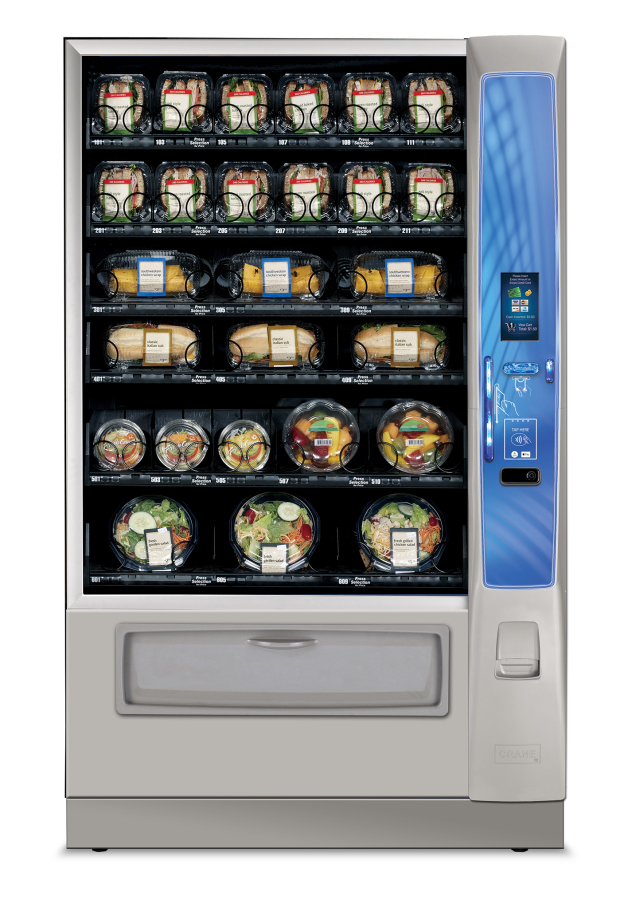A vending machine is an automated machine that provides items such as snacks, beverages, cigarettes and lottery tickets to consumers after cash, a credit card, or a specially designed card is inserted into the machine. The first modern vending machines were developed in England in the early 1880s and dispensed postcards. Vending machines exist in many countries, and in more recent times, specialized vending machines that provide less common products compared to traditional vending machine items have been created.
The first modern coin-operated vending machines were introduced in London, England in the early 1880s, dispensing postcards. The machine was invented by Percival Everitt in 1883 and soon became a widespread feature at railway stations and post offices, dispensing envelopes, postcards, and notepaper. The Sweetmeat Automatic Delivery Company was founded in 1887 in England as the first company to deal primarily with the installation and maintenance of vending machines. In 1893, Stollwerck, a German chocolate manufacturer, was selling its chocolate in 15,000 vending machines. It set up separate companies in various territories to manufacture vending machines to sell not just chocolate, but cigarettes, matches, chewing gum and soap products.
The first vending machine in the U.S. was built in 1888 by the Thomas Adams Gum Company, selling gum on New York City train platforms. The idea of adding games to these machines as a further incentive to buy came in 1897 when the Pulver Manufacturing Company added small figures, which would move around whenever somebody bought some gum from their machines. This idea spawned a whole new type of mechanical device known as the "trade stimulators.

